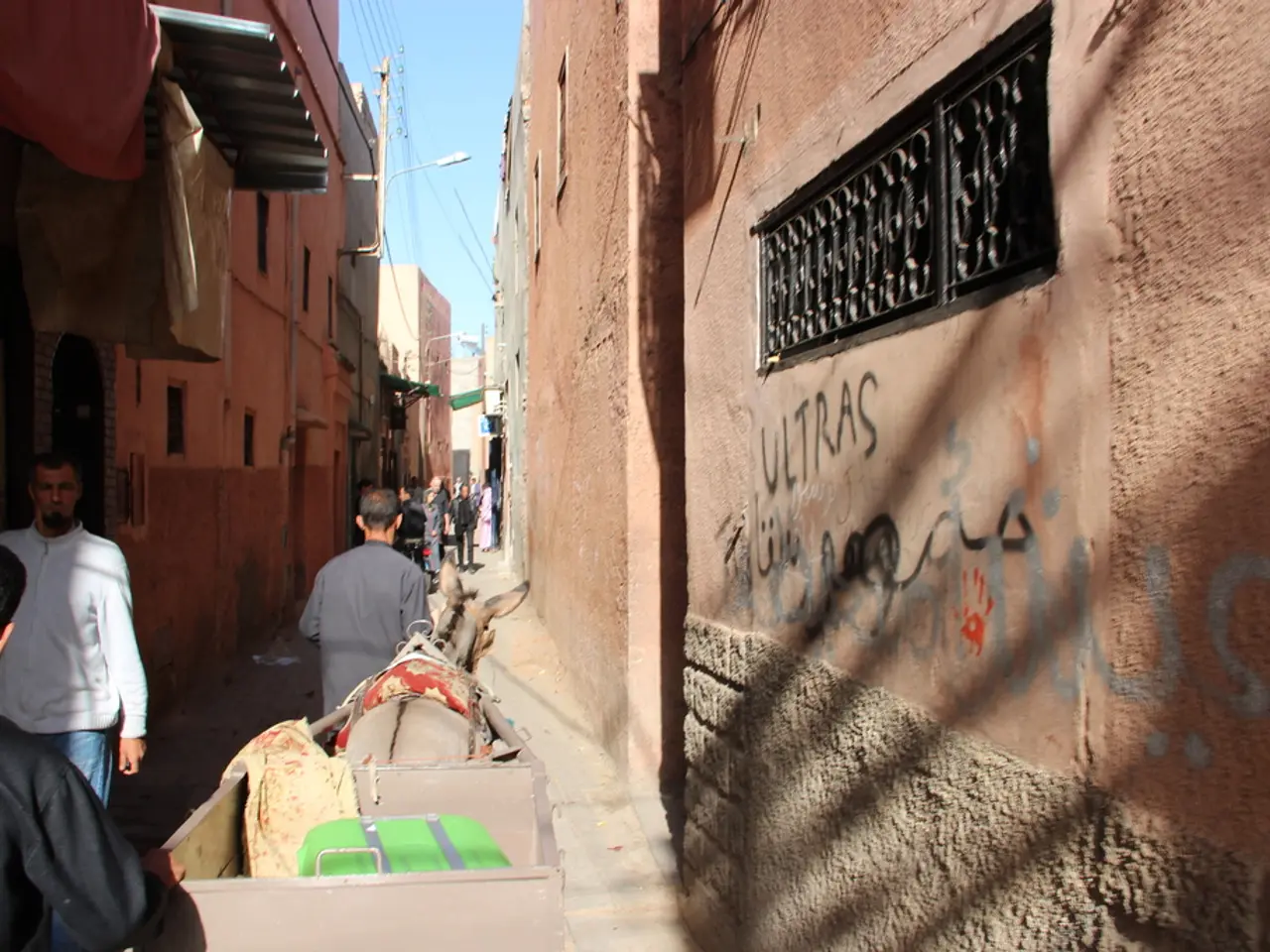Inadequate humanitarian assistance flowing into Gaza, according to Germany's assertion
The Israeli-Palestinian conflict continues to escalate, with a severe humanitarian crisis unfolding in the Gaza Strip. Over two million Palestinians are facing starvation, according to aid agencies, as the delivery of essential supplies remains insufficient.
Israel, which is obligated to ensure the full delivery of aid according to the German government, has been accused of equipping Palestinian criminal networks in its fight against Hamas. Allegations suggest that Israeli policies aimed at preventing Hamas's control over aid have inadvertently led to a drastic reduction in aid flow.
The challenges in aid delivery are numerous. Israel's blockade and security protocols limit access and quantity of aid, aiming to prevent Hamas from diverting supplies. However, this system has been criticized for drastically reducing aid flow. Reports indicate that about 88% of aid trucks slated for Gaza delivery since May have been looted along the routes, complicating effective aid distribution.
Moreover, the extreme dangers civilians face in accessing or distributing aid are evident. Since May 27, over 1,000 Gazans have been killed by Israeli forces while attempting to access food aid.
Hamas's governance and militant control over Gaza further complicate independent humanitarian operations. Israel and some aid systems exclude Hamas to prevent their benefit from aid, but Hamas’s presence effectively affects delivery logistics and distribution within Gaza.
Germany, expressing concern about these reports, has staged its first food airdrops into Gaza. However, the delivery of humanitarian aid to the Gaza Strip remains insufficient to alleviate the emergency situation, according to the German government. The United Nations reports that 6,000 trucks are waiting for Israel's permission to enter the occupied Palestinian territory.
Israel has allowed more trucks to cross the border and some foreign nations to carry out airdrops of food and medicines. Yet, Israel alleges that much of the aid arriving in Gaza is being siphoned off by Hamas.
As the crisis deepens, Israel is facing mounting international criticism over its military operations in Gaza. Germany's Foreign Minister Johann Wadephul visited the region on Thursday (Jul 31) and Friday, but no new information about his visit was provided.
In summary, the humanitarian crisis in Gaza is a complex issue, with limited humanitarian aid being allowed into the region due to Israeli policies aimed at preventing Hamas's control over aid, and the dangerous and unstable conditions within Gaza, including looting and violence, resulting in widespread deprivation despite urgent humanitarian needs.
The ongoing Israeli-Palestinian conflict, steeped in politics and war-and-conflicts, has led to a severe humanitarian crisis in the Gaza Strip. This crisis is further compounded by the limited delivery of essential supplies due to Israeli policies, criticized for drastically reducing aid flow, and the looting of aid trucks, complicating effective distribution. Meanwhile, the governance and militant control of Gaza by Hamas adds another layer of complexity to independent humanitarian operations. Despite efforts from countries like Germany to alleviate the emergency situation through airdrops, the delivery of general-news such as food, medicine, and other humanitarian aid remains insufficient.






